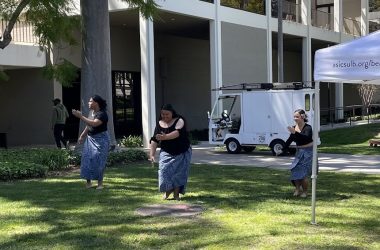California public universities are faced with a dilemma: lose their carbon and greenhouse gas emissions or lose their green.
Assembly Bill 32, also known as the 2006 Global Warming Solutions Act, set a goal to reduce California greenhouse gas (GHG) emissions to 1990 levels within the next eight years.
Campuses, such as University of California, Los Angeles; University of California, Irvine; San Diego State University; and San Jose State University are in jeopardy of paying compliance costs if they do not meet the standards that AB 32 has established.
According to the state’s website, the bill requires large industrial sources to report and verify their GHG emissions.
The bill has also adopted a “cap-and-trade program” that went into effect January 2012, which places a cap on the amount of carbon emissions and progressively lowers the cap until 2020.
Companies that do not lower their emissions will be forced to pay a fee or purchase “carbon credits” equal to the emissions under the cap. The price of these carbon credits has not been announced yet.
According to Cal State University Spokesman Erik Fallis, Cal State Long Beach does not fall under the cap and trade provisions.
Fallis also said via email that out of the 23 CSU campuses, only SDSU, SJSU, Cal State Fullerton and Cal State Channel Islands will be affected by the legislation.
The estimated cost for the CSU system to comply with AB 32 could be between $3 and $7 million but the price could be considerably higher, according to Fallis.
Fallis said due to a decline in state support since 2007-08 and a lingering potential trigger cut to the system’s budget, the CSU has been in discussions with state officials, attempting to persuade the legislature to reconsider these measures.
Junior and liberal studies major Melany Ramirez said the legislation comes during a very harsh time for students.
“The law is not only going to affect institutions but also the students who have been dealing with budget cuts, tuition increases and cuts on resources,” Ramirez said.
Sophomore biology major Bryan Santiago said he does not see why CSU campuses would need to cut down on carbon emissions because the energy input and output of the system amounts to little.
“I think this new law is unnecessary since us, as students, are already paying a lot of people money, and putting less money in our education is not going to help us succeed,” Santiago said.
Ruben Garcia, senior biology major, also expressed concern for the law’s timing.
“Our economy is still in a recession, and California itself is facing a huge deficit,” Garcia said. “Cutting more money from schools is just going to make everything worse.”



